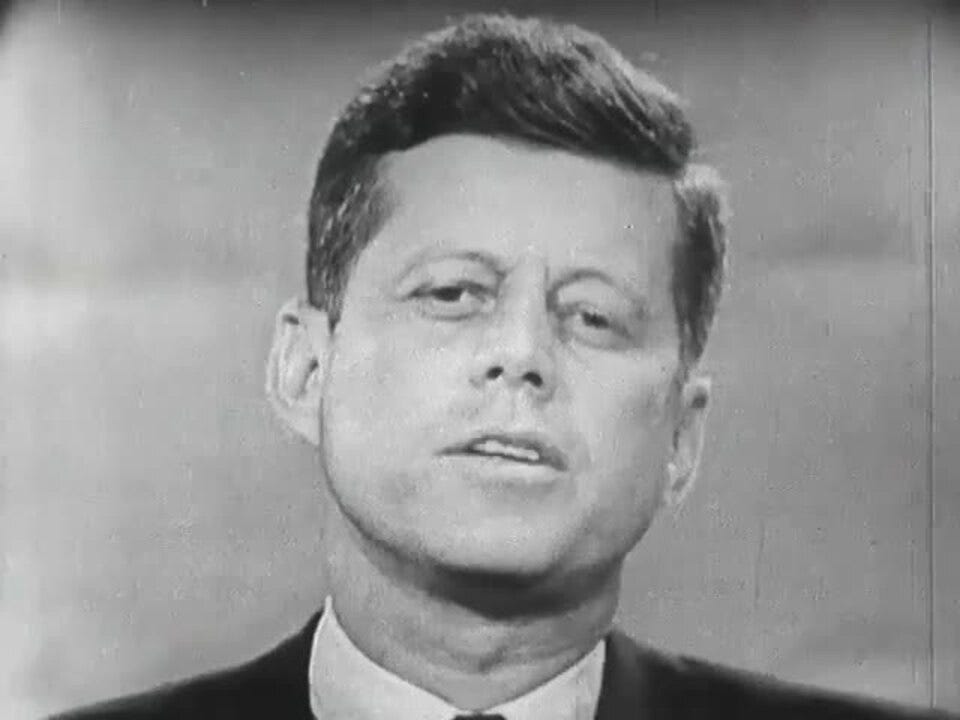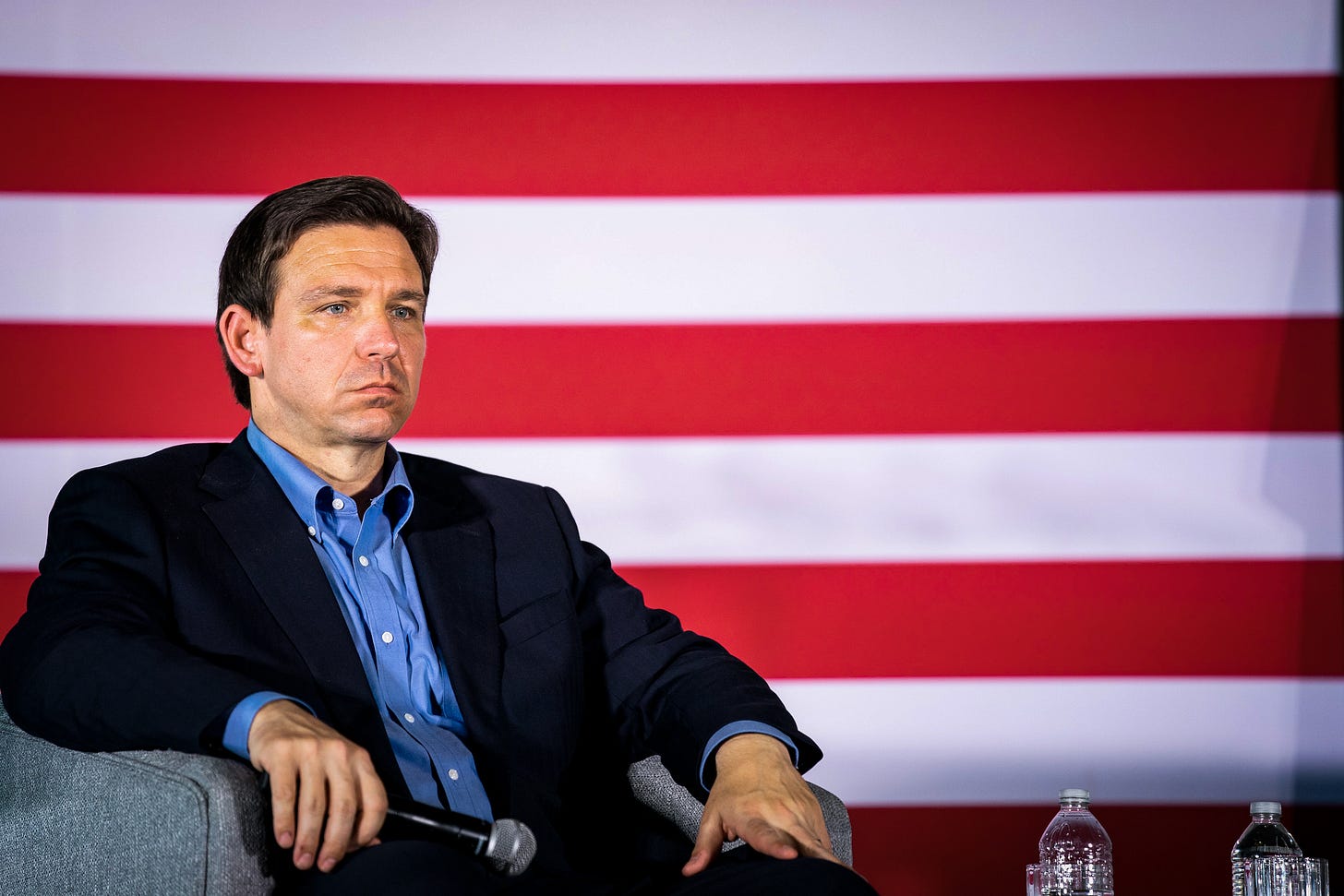Americans have an elevated sense of political debates stemming from our (scant) understanding of the famous Lincoln-Douglas debates in the1858 U.S. Senate race in Illinois. Abraham Lincoln won the debates, but lost the race. In the process, however, he so damaged Stephen Douglas as a national political figure that he could not win the presidential race in 1860. Lincoln did.
But probably few people know much, if anything, about the Lincoln-Douglas debate. Indeed, few probably have any knowledge of the debate in the “campaign of the century” between John F. Kennedy and, to use Archie Bunker’s phrase, “Richard E. Nixon” in 1960.
Both men were experienced debaters. Nixon had already gained fame in his debate the year before in Moscow in front of a kitchen mock up with Soviet Premier Nikita Khrushchev.
Going into the 1960 presidential debates, marginal candidates had to have a spot on the stage, but Congress passed a joint resolution ending the “free time” rule in August 1960 and NBC’s Chariman Robert Sarnoff was immediately on the phone to both camps seeking a televised debate. Other networks barged in, and ultimately there would be four debates, the first (broadcast by CBS) on domestic policy. No audiences were permitted, only four reporters. (It must be kept in mind that at that time, despite their biases, journalists were vastly more professional in terms of their questions and behavior). Debate #1 would be held in Chicago on September 26.
President Dwight Eisenhower warned Nixon about the debates, telling him JFK was less well known and no matter how well he did, the exchange would only enhance Kennedy’s image. Moreover, because of Kennedy’s Catholicism, Ike warned, Nixon “could not be too tough.”
Kennedy focused like a laser on the debate, Nixon treated it like a campaign stop, arriving just seven minutes before air time. He also was recovering from a bout of phlebitis and had lost five pounds. Worse, Nixon’s manager refused makeup for his candidate. One of the few pro-Nixon reporters, Earl Mazo, thought Nixon looked like the “wrath of God.”
The debate drew the largest ever audience for a political event, with over 66% of all American television sets tuned in. Reporter Howard K. Smith thought Nixon barely won; Kennedy told Smith he was confidenc he had won.
Popular mythology is that Nixon, because of his wan complexion after a hospital stay and a light grey suit (compared to JFK’s tan and dark suit), lost the debate for those polled later who watched on TV, but won among those who listened on the radio. In fact, the most recent Nixon biographer, Irwin Gellman, in The Campaign of the Century, debunks that. Gallup polls showed no change from before the debate. The campaigns exited the debate as they entered: “Too close to call.”
More recently, some Americans are old enough to remember Ronald Reagan crushing President Jimmy Carter with a single line, “There you go again.”
It came in response to Carter inveighing a trove of statistics and Reagan’s response resonated with Americans as a “normal” guy brushing off a numbers-spewing geek. In 1984, after a disastrous first debate against Democrat Walter Mondale, all Reagan had to do was reassure Americans that he was not getting senile—-a point Mondale hinted at. Reagan again won the debate with a line in which he said “I am not going to exploit, for political purposes, my opponent's youth and inexperience." Even Mondale laughed.
In each case, Reagan had won by an insightful quip that seemed to get to the essence of the public’s concerns. In neither case did policy or even ideological specifics matter.
A much different scenario greeted Donald Trump in the GOP debates against 16 other candidates in 2015. Going in, it was expected that the debate pro, Senator Ted Cruz, would easily win. But Donald Trump, applying a maxim that in 2020 would beat him—-”it’s not the votes that counts, but who counts the votes”—-internalized what he had seen with the Hillary Clinton/Barack Obama debates in 2008. In those debates, Obama had a slick, polished web-oriented debate response team that immediately claimed he “won.” They took advantage of a new gimmick on the internet, web-based polling that not only allowed cheating, but encouraged it.
Trump’s team gleaned this was the wave of the future. In debate after debate, whether Trump actually won or lost, it was irrelevant: he simply won all of them in the internet polls. Creepy, illegitimate, conniving journalists had no choice but to report their own polls!
In the current GOP upcoming debates, Trump shifted strategies again. By not appearing, he diminished virtually all of the (mostly unknown) challengers and denied Florida Governor Ron DeSantis a chance to land potentially damaging blows. While Trump may have been out-foxed (most would say, out-cheated) in the 2020 campaign, like a Marine he adapts, improvises, and overcomes. He is constantly one to two steps ahead in the process of campaigning.
Nothing illustrated this more than DeSantis’s ill-advised (and now, apparently, disastrous) strategy of personally taking the “high road” and not criticizing Trump (though he has on several occasions), but instead hiring armies of low-talent “influencers” whose arguments on his behalf are both simultaneously ineffective and alienating to non-Trump supporters. It got so bad, DeSantis had to fire an entire raft of the first line of influencers (including Bill Mitchell and John Cardillo) and bring in a B team that, so far, have proven equally horrible. Thus, Trump “wins” the debates whether he shows up or not because in this case he has learned to “count the votes.”
Larry Schweikart
Rock drummer, Film maker,NYTimes #1 bestselling author. Help us make “Patriot’s History” into a feature film.
Link for Patriot’s History Vimeo
Link to buy larry a coffee
http://buymeacoffee.com/larrys









